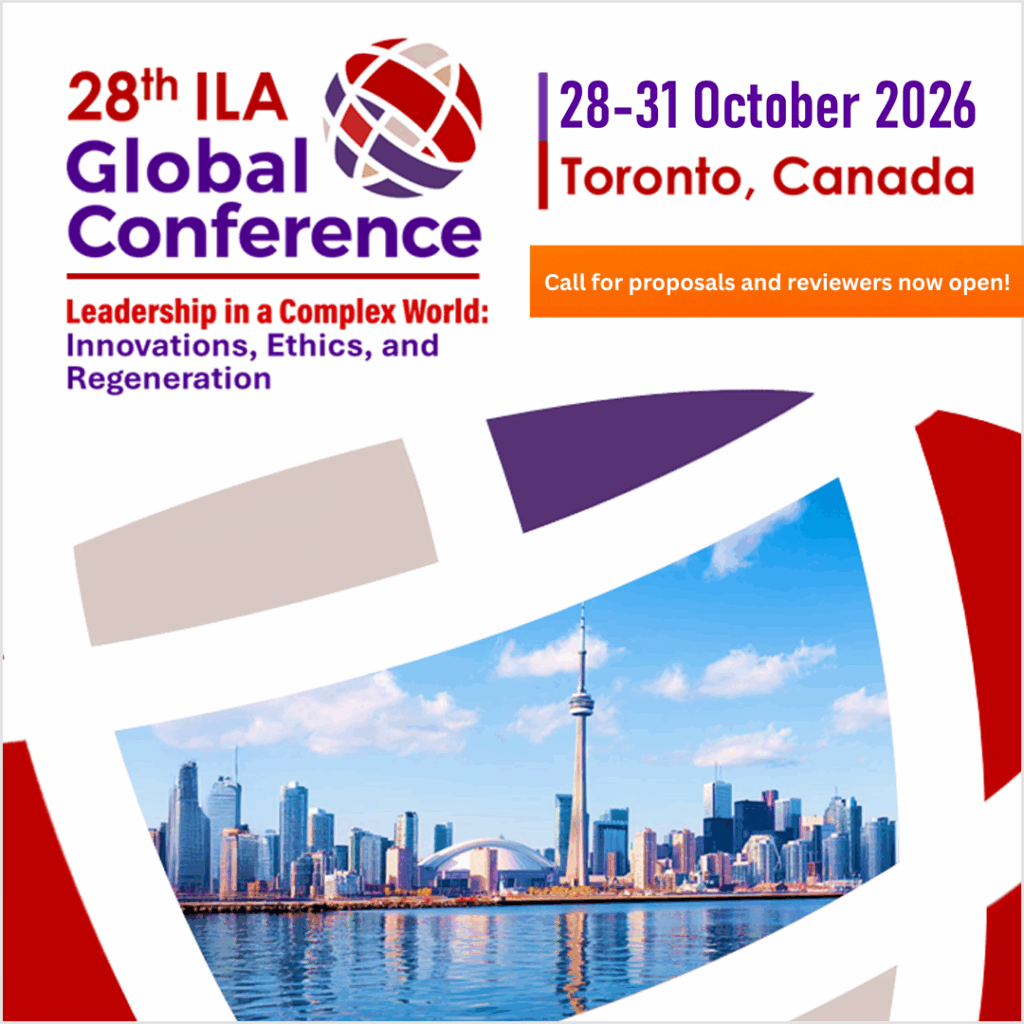
Share:
Too often scientists and activists lead the way in advocating change, not the political and corporate leaders who actually have the power and authority to effect change. What role, though, does the leadership industry play in challenging leaders to address political, social, and economic systems that are inequitable and unsustainable?
by Dr. Suze Wilson
- 24 January 2024
2023 was the warmest year on record, with Earth’s temperature recently, albeit briefly, reaching 2 degrees Celsius above pre-industrial levels for the first time. This is something climate scientists have long warned will create catastrophic effects, should it become the new normal. The increasing likelihood of this possibility makes starkly evident the profound reliance we all have on political and business leaders to act responsibly. The reality is we can’t live without leadership, but if the decisions leaders make are unwise or unjust then many die because of leadership.
While this has long been the case, contemporary challenges — such as climate change, the existence of weapons that can inflict large scale death and destruction, and pandemic diseases that can spread globally in just weeks — have clearly raised the stakes when it comes to the need for competent and ethical leadership and the risks incompetent or unethical leaders pose to people and the planet.
As just one example of this, a lack of progress in reducing CO2 emissions in accordance with the international treaty on climate change, known as the Paris Agreement, led the UN Environment Programme to warn in 2022 that “urgent system-wide transformation” was now the only means left to avoid a “climate disaster.” While the 2023 Global Climate Action Summit in Dubai, COP28, delivered the historic UAE Consensus to accelerate climate action and put forward a plan to close the gap to the Paris 2030 goals, it remains to be seen whether the signatories will put action behind their words. Given it is clear that much more should have been done much sooner, skepticism seems warranted. Indeed, even now still moving in precisely the wrong direction, Aotearoa New Zealand’s recently formed conservative-libertarian-populist coalition government has said it will reverse the current ban on new offshore oil and gas exploration. Too often it is scientists and activists who are leading the way in advocating for changes needed to ameliorate global warming and environmental degradation, while political and corporate leaders — who actually have the power and authority to effect such changes — drag their feet.
If our efforts are to serve the greater good, those of us engaged in the leadership industry ought to be clear-eyed that leadership is far too often part of the problem humanity collectively faces, rather than part of the potential solution, as we would hope it to be. Further, because the industry is these days largely psychologized in its orientation and focused on behavioral and cognitive considerations, we typically avoid considering the substantive issues leaders face and the impact of the choices they make, ceding this territory to experts in fields such as public policy, political science, or corporate strategy and performance. This orientation, however, risks ignoring the broad characteristics and consequences of contemporary leadership. The unpalatable reality — that leaders are in many cases merely upholding political, social, and economic systems that are inequitable and unsustainable and doing little to transform those systems — deserves more of our attention.
To help develop that broader perspective I believe we can find inspiration in the longer history of our field, something which I’ve sought to explore in earlier work. In the medieval era, for instance, a genre of books called “Mirrors for Princes” were a key vehicle through which scholars sought to advise heads of state on all aspects of how they should lead. While at times such advice merely pandered to the status quo, at its best it sought to challenge absolutist monarchs to act wisely and justly. The disciplinary boundaries that we now take for granted did not exist, leaving scope for a more holistic consideration of behavioral, processual, moral, political, and substantive policy matters involved in leading a nation. This required scholars to build a broad understanding of the work of leadership and a rich sense of the context in which it took place. These days, multi- and transdisciplinary approaches could help forge a more holistic approach to understanding leadership.
It is also notable that as a community today we mostly focus on what makes for good leadership — and generally have far less to say when it comes to bad leadership. A recent search on Amazon books for “good leadership” offered “over 40,000 results,” while a search for “bad leadership” generated just “over 3000 results.” Perhaps also in part because of the tendency to now focus principally on leadership’s behavioral and cognitive aspects, we appear collectively prone to “romanticizing” leadership in ways that overstates its influence and underestimates its complexities by not paying heed to the substantive issues that leaders are grappling with.
The adage that “if you only have a hammer, everything looks like a nail” seems apposite here. In focusing intently on leader and follower related variables, other wider influences shaping what happens are too easily ignored. Adherence to methodologies that emphasize precision over broad sense-making gives rise to knowledge that is decontextualized, a problem I’ve also explored in earlier work. In the effort to identify effective behaviors and formulate these into a parsimonious model the broader reality that all humans are inevitably flawed so easily fades from view, replaced by an idealized, “upbeat” prescription that only shows us the bright side of leadership.
There are some powerful psychological, practical, and political factors tied up with this problem of “excessive positivity.” It can, for instance, be very comforting to focus our minds on instances of leadership that are inspiring and ethical.
There are some powerful psychological, practical, and political factors tied up with this problem of “excessive positivity.” It can, for instance, be very comforting to focus our minds on instances of leadership that are inspiring and ethical. Finding the goodness in the world can help ward off despair, apathy, and cynicism. Looking to good exemplars of what is possible when it comes to leadership can give us hope, motivate us to persist in the face of setbacks, and offer guidance for how to act. And because authority figures are such potent formative influences in how we come to make sense of the world and our place in it, people do often fantasize about leadership that is benevolent and omnipotent.
There are also practical benefits that can come from building our understanding of what makes for good leadership. That knowledge can be used to educate and develop others about what leading well entails. It allows us to develop benchmarks against which leaders can be evaluated. It can be used to help in weeding out those not fit to lead and in holding leaders to account.
But, as Foucault argues, knowledge and power are entwined with each other, meaning knowledge both relies on and generates relations of power, while relations of power rely on and generate knowledge. Applied to the predominantly rose-tinted accounts of leadership that dominate expert discourse, and to which practitioners often look for guidance, this creates the impression that by and large leadership is a source of goodness, and any problems likely derive from a few “bad apples.”
However, reflecting trends found in many countries in recent decades, the AFL-CIO’s 2023 annual “Executive Paywatch” report found CEOs at S&P500 companies on average earned 272 times that of their median workers. This result is not the actions of a few “bad” leaders going rogue, nor is it a “bug” in the system. Instead, greed by corporate leaders has been systematized and normalized. It is a matter of deliberate design. It is pervasive, legitimated, institutionalized, and routinized, despite years of worker and shareholder activism challenging it as unjustified and unjustifiable. Yet when it is repeatedly reported by those of us engaged in the leadership industry that evidence shows leaders are key to unlocking greater worker productivity, commitment, and innovation, this greed is made easier to justify.
If, however, our analyses took into account a broader set of factors that influence business performance, it seems likely leaders might not appear quite so heroic. Indeed, in basically the same era that the leadership industry has been busy advocating the moral desirability of transformational and authentic leaders, U.S. worker’s productivity rose by 72.2% but their inflation adjusted hourly pay increased only 9% between 1973 and 2014 . This would seem to give pause for thought as to what kind of “morality” is being practiced. Arguably one key consequence of a psychologized, romanticized, and excessively positive narrative about leadership is that it, in fact, functions to legitimate gross inequities.
Of course the leadership industry is far from being the only influence here. In books, TV shows, and movies, leaders are often depicted as heroic, larger-than-life characters with the capacity to save others, even the world. In business media, it is often implied CEOs have somehow turned a company around single-handedly. Popular culture and media narratives are thus other important influences in our ongoing love affair with leadership. This love, however, may be blinding us to the reality that leadership is too often not loving, nor wise, nor just.
None of this, of course, is to say leadership is not important. Clearly it is. At its best it does inspire, unite, mobilize, give us hope, and help us collectively address our shared problems. But, given that leadership today can also, all too readily, cause people to face avoidable adversity or even die, if we’re going to contribute to developing leadership that supports human flourishing, more focus needs to go on bringing a holistic and critically oriented lens to bear in our efforts to help serve the greater good.
Alvesson, M. (2020). Upbeat leadership: A recipe for – or against – “successful” leadership studies. The Leadership Quarterly, 31(6), 101439, 10.1016/j.leaqua.2020.101439
Alvesson, M., & Einola, K. (2019). Warning for excessive positivity: Authentic leadership and other traps in leadership studies, The Leadership Quarterly, 30(4), 383-395, 10.1016/j.leaqua.2019.04.001
Alvesson, M., Yiannis G., & Paulsen, R. (2017). Return to meaning: A social science with something to say. Oxford.
Bezio, K.M.S., & Yost, K. (2018). Leadership, Popular Culture and Social Change. Edward Elgar.
Daalder, M. (2023, November 25). Seymour and Peters bet on certainty over influence in new govt. Newsroom.
Dewan, A., & Paddison, L. (2023, November 20). Scientists sound the alarm as the world briefly smashes through 2-Degree warming limit for the first time. CNN.
Gabriel, Y. (1997). Meeting God: When organizational members come face to face with the supreme leader. Human Relations, 50(4), 315-342. 10.1177/001872679705000401
Guthey, E., Clark, T., & Jackson B. (2009). Demystifying Business Celebrity. Routledge.
Kellerman, B. (2015). Leadership – It’s a system, not a person. Daedalus, 145 (3), 83-94.
Meindl, J. R., Ehrlich, S. B., & Dukerich, J. M. (1985). The romance of leadership. Administrative Science Quarterly, 30(1), 78–102. https://doi.org/10.2307/2392813
UN Environment Programme. (2022). Emissions Gap Report 2022.
United Nations Climate Change (2015). The Paris Agreement.
RNZ. (2023, November 27). Green Party launches petition to keep ban on offshore oil and gas exploration.
Stiglitz, J.E. (2016). Inequality and Economic Growth. In M. Jacobs & M Mazzucato (Eds), Rethinking capitalism: Economics and policy for sustainable and inclusive growth. Wiley-Blackwell.
Wilson, S. (2016). Thinking differently about leadership: A critical history of leadership studies. Edward Elgar.
Wilson, S., Cummings, S., Jackson, B., & Proctor-Thomson, S. (2018). Revitalising leadership: Putting theory and practice into context. Routledge
World Meteorological Organization. (2023, November 30). 2023 shatters climate records, with major impacts.

Dr. Suze Wilson is a leadership scholar and senior lecturer at Massey University, Auckland, Aotearoa New Zealand. Her research examines issues of power, identity, gender, ethics, discourse, practice, context and crisis in relation to leadership and its development. Her doctoral thesis won the 2014 Fredic M. Jablin Doctoral Dissertation Award given by the ILA in partnership with the Jepson School of Leadership Studies. Her work has appeared in the Journal of Business Ethics, Organization, Organizational Dynamics, Leadership and Culture and Organization. Suze’s books are Thinking differently about leadership (2016), Revitalizing leadership (2018), written in collaboration with Stephen Cummings, Brad Jackson and Sarah Proctor-Thomson, and After leadership, which she edited in collaboration with Brigid Carroll and Josh Firth. She is currently involved in editing the forthcoming Routledge Critical Companion to Leadership Studies along with David Knights, Owain Smolovic-Jones and Helena Liu. She is an Associate Editor of the journal Leadership and also writes public commentary for The Conversation. Prior to entering academia Suze held a range of senior leadership roles in several government agencies, the New Zealand postal service, in a trade union and in the student union movement.
If you find these reflections to be of value in your work and life, please consider becoming part of ILA’s leadership community.
As an Amazon Affiliate ILA may earn a small amount from qualifying purchases (at no extra charge to you) when you click on a link to a book above. Thank you for your support!

